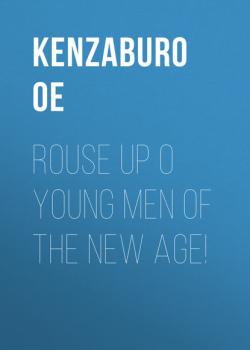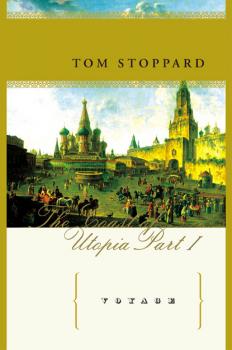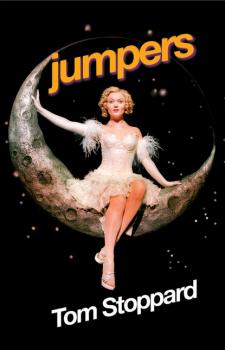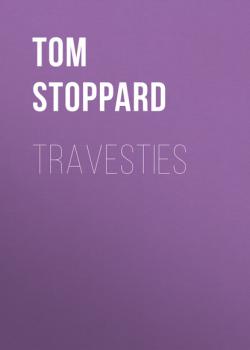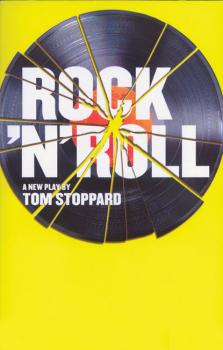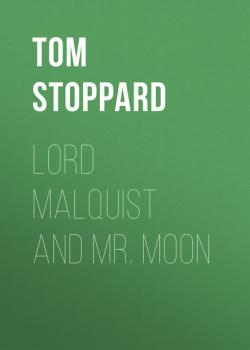Ingram
Все книги издательства IngramUmbrella
"A brother is as easily forgotten as an umbrella."—James Joyce, UlyssesRadical and uncompromising, Umbrella is a tour de force from one of England’s most acclaimed contemporary writers, and Self’s most ambitious novel to date. Moving between Edwardian London and a suburban mental hospital in 1971, Umbrella exposes the twentieth century’s technological searchlight as refracted through the dark glass of a long term mental institution. While making his first tours of the hospital at which he has just begun working, maverick psychiatrist Zachary Busner notices that many of the patients exhibit a strange physical tic: rapid, precise movements that they repeat over and over. One of these patients is Audrey Dearth, an elderly woman born in the slums of West London in 1890. Audrey’s memories of a bygone Edwardian London, her lovers, involvement with early feminist and socialist movements, and, in particular, her time working in an umbrella shop, alternate with Busner’s attempts to treat her condition and bring light to her clouded world. Busner’s investigations into Audrey’s illness lead to discoveries about her family that are shocking and tragic.
Rouse Up O Young Men of the New Age!
Wise and illuminating, Rouse Up O Young Men of the New Age! is a masterpiece from one of the world's finest writers, Kenzaburo Oe – winner of the Nobel Prize for Literature. K is a famous writer living in Tokyo with his wife and three children, one of whom is mentally disabled. K's wife confronts him with the information that this child, Eeyore, has been doing disturbing things – behaving aggressively, asserting that he's dead, even brandishing a knife at his mother – and K, given to retreating from reality into abstraction, looks for answers in his lifelong love of William Blake's poetry. As K struggles to understand his family and assess his responsibilities within it, he must also reevaluate himself – his relationship with his own father, the political stances he has taken, the duty of artists and writers in society. A remarkable portrait of the inexpressible bond between this father and his damaged son, Rouse Up O Young Men of the New Age! is the work of an unparalleled writer at his sparkling best.
Mukiwa
Mukiwa opens with Peter Godwin, six years old, describing the murder of his neighbor by African guerillas, in 1964, pre-war Rhodesia. Godwin's parents are liberal whites, his mother a governement-employed doctor, his father an engineer. Through his innocent, young eyes, the story of the beginning of the end of white rule in Africa unfolds. The memoir follows Godwin's personal journey from the eve of war in Rhodesia to his experience fighting in the civil war that he detests to his adventures as a journalist in the new state of Zimbabwe, covering the bloody return to Black rule. With each transition Godwin's voice develops, from that of a boy to a young man to an adult returning to his homeland. This tale of the savage struggle between blacks and whites as the British Colonial period comes to an end is set against the vividly painted background of the myserious world of South Africa.
Somersault
The first new novel Oe has published since winning the Nobel Prize, Somersault is a magnificent story of the charisma of leaders, the danger of zealotry, and the mystery of faith.A decade before the story opens, two men referred to as the Patron and Guide of mankind were leaders of an influential religious movement. When a radical faction of their followers threatened to unleash an apocalypse, they recanted all of their teachings and abandoned their followers. Now, after ten years of silence, Patron and Guide begin contacting their old followers and reaching out to the public, assisted by a small group of young people who have come to them in recent months.Just as they are beginning this renewed push, the radical faction kidnaps Guide, holding him captive until his health gives out. Patron and a small core of the faithful, including a painter named Kizu who may become the new Guide, move to the mountains to establish the church’s new base, followed by two groups from Patron’s old church: the devout Quiet Women, and the Technicians, who have ties to the old radical faction. The Baby Fireflies, young men from a nearby village, attempt to influence the church with local traditions and military discipline. As planning proceeds for the summer conference that will bring together the faithful and launch the new church in the eyes of the world, the conflicting agendas of these factions threaten to make a mockery of the church’s unity—or something far more dangerous.
Voyage
Comprising of three sequential plays, The Coast of Utopia chronicles the story of romantics and revolutionaries caught up in a struggle for political freedom in an age of emperors.The Coast of Utopia is Tom Stoppard’s long-awaited and monumental trilogy that explores a group of friends who come of age under the Tsarist autocracy of Nicholas I, and for whom the term “intelligentsia” was coined. Among them are the anarchist Michael Bakunin, who was to challenge Marx for the soul of the masses; Ivan Turgenev, author of some of the most enduring works in Russian literature; the brilliant, erratic young critic Vissarion Belinsky; and Alexander Herzen, a nobleman's son and the first self-proclaimed socialist in Russia, who becomes the main focus of this drama of politics, love, loss and betrayal. In The Coast of Utopia, Stoppard presents an inspired examination of the struggle between romantic anarchy, utopian idealism and practical reformation in what The New York Times calls, “The biggest theatrical event of the year. . . . Brilliant, sprawling. . . . A rich pageant.”
Jumpers
Tom Stoppers's play «Jumpers» is both a high-spirited comedy and a serious attempt to debate the existence of a moral absolute, of metaphysical reality, of God. Michael Billington in «The Guardian» described the play succinctly: «The new Radical Liberal Party has made the ex-Minister of Agriculture Archbishop of Cantebury, British astronauts are scrapping with each other on the moon, and spritely academics steal about London by night indulging in murderous gymnastics: this is the kind of manic, futuristic, topsy-turvy world in which Stoppard's dazzling new play is set. And if I add that the influences apparently include Wittgenstein, Magritte, the Goons, Robert Dhery, Joe Orton, and The Avengers, you will have some idea of the heady brew Stoppard has here concocted.» The protagonist incude an aging Professor Of Moral Philosophy – trying to compose a lecture on «Man – Good, Bad or Indifferent» – while ignoring a corpse in the next room; his beautiful young wife, an ex-musical comedy Queen, lasciviously entertaining his university boss down the hall; her husband's specially trained hare, Thumpers; and a chorus of gymnasts, Jumpers.
Travesties
"Travesties" was born out of Stoppard's noting that in 1917 three of the twentieth century's most crucial revolutionaries – James Joyce, the Dadaist founder Tristan Tzara, and Lenin – were all living in Zurich. Also living in Zurich at this time was a British consula official called Henry Carr, a man acquainted with Joyce through the theater and later through a lawsuit concerning a pair of trousers. Taking Carr as his core, Stoppard spins this historical coincidence into a masterful and riotously funny play, a speculative portrait of what could have been the meeting of these profoundly influential men in a germinal Europe as seen through the lucid, lurid, faulty, and wholly riveting memory of an aging Henry Carr.
Rock 'n' Roll
Rock ’n’ Roll is an electrifying collision of the romantic and the revolutionary. It is 1968 and the world is ablaze with rebellion, accompanied by a sound track of the Rolling Stones and Bob Dylan. Clutching his prized collection of rock albums, Jan, a Cambridge graduate student, returns to his homeland of Czechoslovakia just as Soviet tanks roll into Prague. When security forces tighten their grip on artistic expression, Jan is inexorably drawn toward a dangerous act of dissent. Back in England, Jan’s volcanic mentor, Max, faces a war of his own as his free-spirited daughter and his cancer-stricken wife attempt to break through his walls of academic and emotional obstinacy. Over the next twenty years of love, espionage, chance, and loss, the extraordinary lives of Jan and Max spin and intersect until an unexpected reunion forces them to see what is truly worth the fight.
Lord Malquist and Mr. Moon
Tom Stoppard’s first novel, originally published in 1966 just before the premiere of Rosencrantz and Guildenstern Are Dead, is an uproarious fantasy set in modern London. The cast includes a penniless, dandified Malquist with a liveried coach; Malquist’s Boswellian biographer, Moon, who frantically scribbles as a bomb ticks in his pocket; a couple of cowboys, one being named Jasper Jones; a lion who’s banned from the Ritz; an Irishman on a donkey claiming to be the Risen Christ; and three irresistible women.
Pirandello's Henry IV
In this meeting of two of the twentieth century’s greatest playwrights, Tom Stoppard has reinvigorated Luigi Pirandello’s masterpiece of madness and sanity. After a fall from his horse, an Italian aristocrat believes he is the obscure medieval German emperor Henry IV. After twenty years of living this royal illusion, his beloved appears with a noted psychiatrist to shock the madman back to sanity. Their efforts expose that for the past twelve years the nobleman has in fact been sane. With his mask of madness unveiled, the aristocrat launches an offensive to deflect their unwanted attention. While Pirandello’s characters race linguistically about in Stoppardian dervishes, battling for the upper hand—and the greatest laughs—one question emerges: What constitutes sanity?

